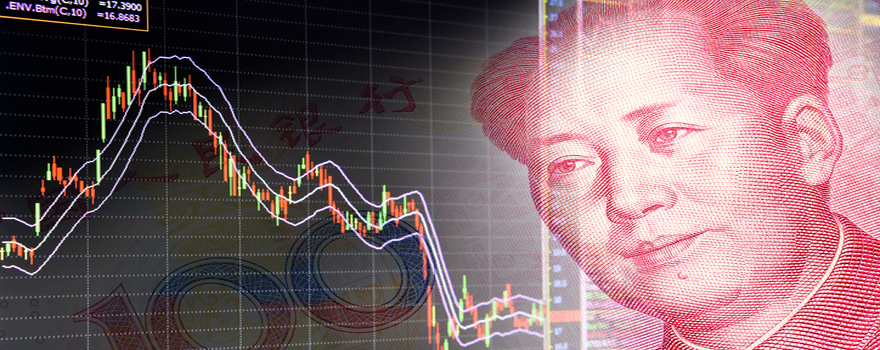
The hurricanes came just in time for the Federal Reserve.
Its policy committee faced the challenge of tightening monetary policy in coming months as promised. But chair Janet Yellen may have escaped by the skin of her teeth once more.
Previously, the startled response of the Taper Tantrum and China’s currency manipulation allowed the Fed to put off the planned tightening cycle. Third time lucky too, thanks to the storms. Nobody wants to raise interest rates on flood victims.
The damage bill from the pair of hurricanes will hit hundreds of billions of US dollars. American GDP will be revised down, but not dramatically. Remember, GDP is a measure of economic activity, not assets. The hurricanes devastate assets.
On the one hand, those assets are used to generate the economic activity counted in GDP. But rebuilding them is included as an increase in GDP. These distinctions are great fun for economists to mislead journalists with, leading to mystifying stories about the economic effect of the hurricanes.
Oil hasn’t reacted much to the supply disruption. It’s up less than 10% in Europe and hardly at all for West Texas Intermediate. Light Louisiana Sweet is up 34% though. But it seems the Fed doesn’t have to fear the inflationary effects of a tighter oil supply.
The probability of an interest rate increase in the US in December, based on options pricing, went from 55% at the end of June to 23% now. Options use a mathematical formula to calculate their intrinsic value. Assuming the price is fair value, and given the other inputs are public information, you can rearrange the formula to figure out other information. Such as the probability of interest rates moving.
This is a matter of people putting their money where their mouth is, so it’s more trustworthy than some economist’s guess. In this case, traders betting on the rate increase are taking that money off the table, making the market move and reducing the implied probability of the hike.
Perhaps Yellen will never raise rates. She’s set to end her term at the Fed in January 2018. Her replacement will be left with the task of returning monetary policy to normal.
The problem is that unusual monetary policy has been on the go for so long it’s become normal. The stock and bond market is dependent on it continuing. That’s why Yellen is perfectly happy to exit stage left before the impossibility of a tightening cycle begins. The hurricanes are her cover to get out before the monetary storm begins.
Which begs the question, how many times will the Fed make this head fake? A head fake is when a sports player wiggles their head around to deceive their opponent about the direction of the coming move. The problem is, it doesn’t work if you keep doing it.
The Fed keeps promising a return to normal policy, but never delivers. When the change does come, it’ll be a rude surprise.
The China risk remains, but this is a trap
In an odd sort of irony, it looks like China has outsourced its currency manipulation. Today, the new policy will become official, reports Bloomberg:
Effective Sept. 11, the People’s Bank of China will stop requiring financial institutions to set aside cash when buying dollars for clients through currency forwards.
Previously, the financial firms offering locked in exchange rates to their clients had to put up 20% of the previous month’s position for a year, interest free. It’s like a deposit or a margin. At least that was one version of the restriction as explained by the financial media. The various explanations all differed.
The point is that it’s going to become far less expensive for speculators to bet against the Chinese currency today. Companies can put up money on margin, as they’re operating with commercial cash flows in the first place. Speculators are heavily leveraged and don’t have the money to put up on margin. At least not to an extent that makes a 20% margin cost effective. So speculators benefit disproportionately from the changes.
Anyway, encouraging speculators doesn’t sound great, especially if you’re a communist. So why did the Chinese government make the change? It’s a clever strategic move – a trap for speculators and evasive action on the pressure from overseas policymakers.
The RMB has appreciated almost 5% in three months
Representatives in China’s government have been complaining about the pressure on their exporting business friends. But with Donald Trump trying to label China a currency manipulator, the government isn’t keen to intervene directly.
Speculators are presumed to be short sellers of the Chinese currency. Which means they’ll make it fall as they take up their newly cost-effective positions without the 20% margin. That’s going as planned. The RMB fell almost 1% on the announced policy change.
The Chinese are using speculators to manipulate their currency. They’re outsourcing the effort to American hedge funds, which profit from the currency’s fall and cause it to fall in the same action.
Does that mean China’s detractors are finally back on track? China short Kyle Bass went public with his position in 2016 and made it the big story of his hedge fund. Since then, he’s been bleeding as the currency rose. But that doesn’t compare with China’s newest fan, fund manager Mark Hart. He began shorting China seven years ago. And only recently changed his mind.
Given the 19th National Congress of the Communist Party of China is booked in for 18 October, presumably not at the Hilton, I’m suspicious of the new currency freedom.
Trump is keen to label China a currency manipulator. This’ll be tough to do if Texan short sellers are the ones moving the currency. It also sets up the justification for an intervention if anything gets out of hand. The evil speculators must be vanquished.
In short, this smells like a trap to me.
Until next time,
Nick Hubble
Capital & Conflict
Related Articles:
Category: Central Banks

